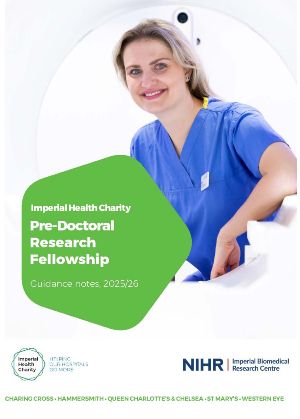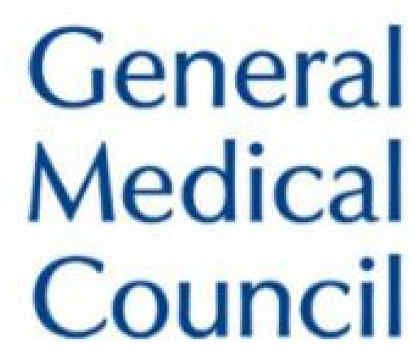Contact Us
ICHT/ICL Research Mentoring Contact
- CATO Team
- The Clinical Academic Training Office
- cato@imperial.ac.uk
RBHT Research Mentoring Contact
- Laura Henderson
- Research Development Manager
- l.henderson@rbht.nhs.uk
RMH Research Mentoring Contact
- Digby Ingle
- BRC Training and Education Manager
- digby.ingle@rmh.nhs.uk
The Imperial College AHSC is a partnership between Imperial College London (ICL), the Imperial College Healthcare NHS Trust (ICHT), the Royal Marsden NHS Foundation Trust (RMHT), the Institute of Cancer Research (ICR), Chelsea & Westminster Hospital NHS Foundation Trust and the Royal Brompton and Harefield Hospitals (RBHH). It aims to improve the health and well-being of patients and populations by ensuring that research discoveries are translated in medical advances, new therapies and techniques as rapidly as possible. We strongly believe in providing the best opportunities and support for our researchers and this is why we have chosen to develop a mentoring for research scheme for NMAHPPs (Nurses, Midwives, Allied Health Professionals, Healthcare Scientists, Pharmacy Staff and Psychologists) undertaking a PhD.
Mentoring is a widely used development tool that has proved to have a beneficial impact on effectiveness, confidence and career advancement. At the heart of mentoring for research, is a relationship based on trust and mutual regard where one colleague uses their expertise and knowledge to support the development of another colleague.
Most mentoring occurs between senior and more junior colleagues although peer mentoring, where there is little or no difference in seniority, is also possible. Through one-to-one confidential conversations, the research mentee is encouraged and challenged to achieve their potential and aspirations. Such conversations can be useful at all stages of a career.
The scheme is open to all NMAHPPs working in Imperial College London, the Imperial College Healthcare Trust, the Royal Marsden NHS Foundation Trust, the Institute of Cancer Research, Chelsea & Westminster Hospital NHS Foundation Trust and the Royal Brompton and Harefield Hospitals.
Who can apply?
Mentors will be individuals who have already embarked on a clinical academic career, almost certainly with a PhD completed, and thinking of further developing themselves as clinical academics into more senior positions working across the Imperial College Academic Health Sciences Centre (AHSC).
Mentees will be individuals who have started a clinical academic career by registering for, or currently undertaking, a PhD. Staff undertaking or considering an MSc or PhD would certainly benefit from careers advice and guidance but not necessarily research mentoring.
What mentoring for research is and what it is not
Mentoring provides a:
- Safe space to explore options and plan future action
- Place to be challenged and supported
- Sounding board
- Source of advice and guidance
- New perspective
Mentoring is not:
- A substitute for line management or supervision
- A shortcut to a promotion
- An alternative to networking or friendship
- Coaching
- The role of an academic supervisor
Mentoring for research in the AHSC
We are keen to support a variety of mentoring relationships:
- With senior staff or peers
- Short and long-term relationships
At whatever stage of your career, we encourage you to think about whether having a mentor would be helpful to you. Whether you are interested in being a mentor or finding one, the links on the right-hand side of this page provide useful information.
The scheme aims to operate broadly on an annual cycle: advertising the schemes early in the year, making matches in February/March and evaluating the impact of mentoring in the following autumn.
However, we recognise that there may be requests for mentoring outside of these times and we will aim to respond positively and find a suitable mentor.
If you have any queries, please get in touch with your local mentoring contact, whose details can be found on the right of this page.
Benefits of Research Mentoring
Benefits for the Mentee include:
- Increased self-awareness, motivation and confidence
- Greater clarity of purpose and productivity
- Increased organisational knowledge and know-how
- Improved skills
- Focus and preparation for the future and career aspirations
Benefits for the Mentor include:
- New perspectives
- Keeping in touch with the realities and challenges facing junior staff
- Development of inter-personal skills
- Personal satisfaction
- Contribution to wider departmental/institutional goals
- Personal academic development to support future career advancement
Benefits to the AHSC Partners include:
- Increased job satisfaction and retention of talented people
- Increased support for clinical academic careers in NMAHPP professions
- Increased academic productivity
- Increased external academic/research support (grants, posts)
- Improved staff engagement
Useful links
Contact us
The CATO Team and Radiographers Incubator work on a Hybrid model, combining days in the office with days working from home – the best way to reach us is by email.
cato@imperial.ac.uk
radresearch@imperial.ac.uk
+44 (0)20 3313 7397




